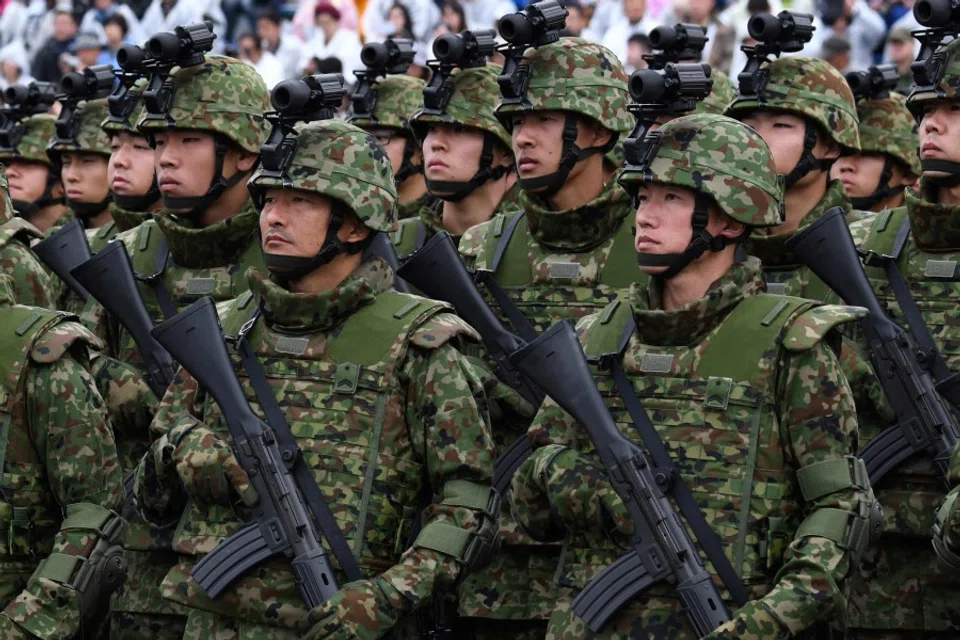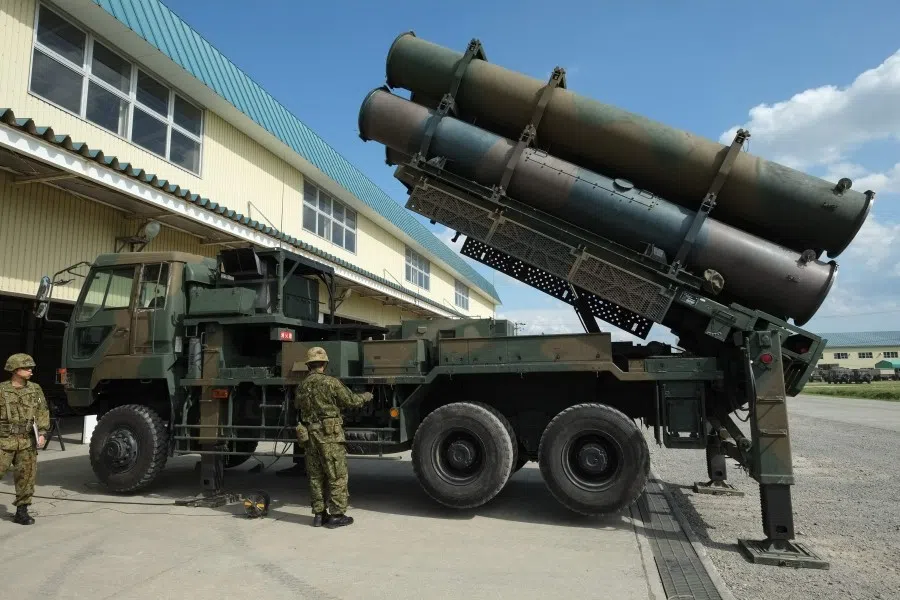Japanese academic: Why Japan needs to level up its military capabilities
Japan has recently announced updates to its national defence strategy, which shows a shift of focus from building defence capabilities to developing "counterattack capabilities" in enemy territory, citing the rapidly worsening security environment as the key factor for doing so. Japanese academic Masafumi Iida also suggests cooperation with Southeast Asian nations to stabilise regional situations.

On 16 December 2022, the Japanese government announced the new "National Security Strategy", which clarifies the goals and measures of future security policies based on the security challenges that Japan faces.
This is a major revision to the first National Security Strategy released in 2013. At the same time, the Japanese government also announced the "National Defence Strategy" - a guide for future defence policies - and the "National Defence Program" - a plan to improve capabilities to realise the National Defence Strategy.
Worsening security environment
The main reason behind the Japanese government's establishment of the new National Security Strategy is the rapid worsening of the security environment surrounding Japan. China has been rapidly increasing its military power, focusing on its navy, air force and rocket force, and in recent years, China has taken action to strengthen its nuclear capabilities.
China, North Korea and Russia are increasing their military pressure on Japan, making it necessary for Japan to strengthen its deterrent power to ensure its own safety and to protect the existing international order.
To Japan, China has tried to unilaterally alter the status quo by force in the East and South China Seas, the Taiwan Strait, and elsewhere by relying on its increasing military power. North Korea has accelerated its development of nuclear missiles and has repeatedly test-launched ballistic missiles. In February 2022, Russia invaded Ukraine, pushing for actual change in the status quo by force.

Recent military movements by China, North Korea and Russia have posed huge challenges to the existing international order, which is based on universal values that have thus far supported global and regional stability. Attempts to alter the status quo through force by these countries cannot be accepted by Japan, which has national interests in maintaining and strengthening the existing international order.
China, North Korea and Russia are increasing their military pressure on Japan, making it necessary for Japan to strengthen its deterrent power to ensure its own safety and to protect the existing international order.
Developing stand-off defence capabilities
The new National Security Strategy clarifies Japan's policy of having "counterattack capabilities" for the purpose of strengthening its own deterrent power. China, North Korea and Russia have each been strengthening their own ballistic and cruise missile capabilities, as well as rapidly improving their long-range precision guided weapons that can strike Japan, including the development of missiles that can fly at hypersonic speeds and fly in an atypical manner.
In the past, Japan has responded to missile threats by developing missile defence capabilities. The increase in missile capabilities by China, North Korea and Russia makes preventing an attack on Japan difficult with missile defence capabilities alone. Accepting this situation, Japan will set out to prevent attacks by having "counterattack capabilities" to launch effective counterattacks in enemy territory.
Accordingly, Japan will not engage in preemptive attacks.
Based on this policy, the Japan Self-Defense Forces have decided to establish stand-off defence capabilities that allow for strikes outside the enemy's threat zone, and by 2027, they will extend the range of Type 12 Surface-to-Ship Missiles, diversify launch platforms, develop hypersonic missiles, and introduce Tomahawk cruise missiles.

They also plan to establish counterattack capabilities utilising stand-off defence capabilities by 2032. These counterattack capabilities aim to prevent an attack on Japan by an enemy by maintaining the ability to impose heavy costs on the enemy, in addition to defence capabilities against enemy missiles. Accordingly, Japan will not engage in preemptive attacks.
Enhancing defence capabilities in new domains
The new National Security Strategy also elaborates on a policy of drastically strengthening Japan's defence capabilities by enhancing defence capabilities in new domains such as outer space, cyberspace, the electromagnetic domain, and the cognitive domain, in addition to establishing counterattack capabilities.
At the same time, it also emphasises the need to maintain and strengthen the existing international order based on universal values by strengthening cooperation with the US and other allies. Maintaining and strengthening the US commitment to the Indo-Pacific region is essential in preventing forceful changes to the status quo by China, North Korea or Russia, and Japan's new defence policy will most likely support this commitment immensely.
Strengthening cooperation with partners that oppose changes to the status quo by force and collectively upholding the importance of a rule-based international order is one of the pillars of Japan's security strategy.
On the other hand, the existing international order cannot be maintained with Japan-US cooperation alone. Strengthening cooperation with partners that oppose changes to the status quo by force and collectively upholding the importance of a rule-based international order is one of the pillars of Japan's security strategy.
While there is great diversity in political systems and culture among Southeast Asian countries, many of these countries can be united against forceful changes to the status quo. With the new National Security Strategy, it is stated that there will be the development of security discussions with Southeast Asian countries, implementation of joint training exercises, and the advancement of defence equipment transfers. Deepening security cooperation between Southeast Asian countries and Japan is extremely important to the stability of the Indo-Pacific region.
Related: What removing the defence budget cap means for Japan's role in the Indo-Pacific | Japan's weapons transfers to Southeast Asia: Opportunities and challenges | Japan's increased funding for US forces in Japan: A true alliance in the making? | Are Chinese fears of a rise in Japanese militarism post-Abe valid? | Japan's move towards acquisition of strike capabilities could benefit Southeast Asia





![[Big read] When the Arctic opens, what happens to Singapore?](https://cassette.sphdigital.com.sg/image/thinkchina/da65edebca34645c711c55e83e9877109b3c53847ebb1305573974651df1d13a)